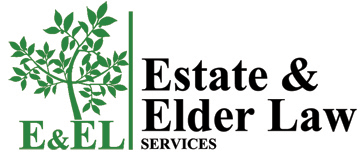Who Pays Your Debts When You Die?

Did you know 73% of consumers have outstanding debt when they die? According to December 2016 data provided to Credit.com by credit bureau Experian, the average debt is $61,000.
Who pays for that?
The debt belongs to the deceased, not the survivors. Debt belongs to the dead person’s estate. The decedent’s estate consists of all property that the person owned at the time of his or her death. This includes real estate, motor vehicles, personal property, bank accounts, etc. If an estate is not opened to assume responsibility for the debts and assets, a creditor can open the estate and manage distribution of the decedent’s property. This is why it is important to have an estate plan in place.
In your estate plan you should choose your own executor or personal representative to carry out your wishes. It is the personal representative’s responsibility to negotiate with creditors, marshal the assets, settle the debts and distribute whatever is left over to beneficiaries and heirs.
Although creditors may go after the assets in the estate, family members are not responsible unless they cosigned or guaranteed the deceased’s debts. However, that will not stop a creditor from nagging or trying to persuade your family to pay the debts even though you have no legal responsibility to do so.
If the estate cannot pay a debt, the creditor usually has the right to seize the property that may have been used to secured a loan, such as a car for a car loan, or foreclose on a house mortgage if an equity line cannot be paid.
There are certain things that creditors cannot reach including life insurance policies or retirement accounts. These assets usually go directly to the beneficiaries that are named in them. But, you should review those accounts diligently to make sure that the right beneficiaries are designated. All too often we see cases where designated beneficiaries die before the insured in a life insurance policy or before the owner of a retirement account. If the beneficiary dies first the assets go into the estate which can subject otherwise tax-free transfers to significant taxes.
As part of every estate plan are always three considerations: 1) incapacity; 2) quick, cheap and easy transfer of property upon death; and 3) asset protection. There are usually seven critical documents necessary to cover all aspects of a well-thought-out estate plan.
1. Trust: which is a legal instrument which explains how to manage your assets during incapacity and at your death.
2. Last Will & Testament: the purpose of the will is to direct who will receive your property when you die and to designate who will manage your estate.
3. Power of Attorney: this allows someone else to act in your name to manage your property.
4. Healthcare Power of Attorney: also known as a Medical Power of Attorney, gives another person authority to make medical decisions for you if you cannot make them for yourself.
5. Health-Care Directive: also called a living will, this explains how you want to be treated if you become incapacitated or terminally ill. This is usually replaced by an actual medical order that you and your physician sign setting out the medical treatment for your condition.
6. HIPAA Release: this permits a trusted individual to receive confidential medical and insurance information about you. This is necessary so that others can assist you when you need help.
7. Ancillary Documents: such as designating a guardian for your minor children or for the disposition of your bodily remains or for the disposition of important personal property.
At Estate & Elder Law Services, we have the training, experience and expertise to assist you with your estate plan. We have the only Certified Elder Law Attorney in the state of Delaware, who is certified by the National Elder Law Foundation, the only organization accredited to certify attorneys by the American Bar Association.
